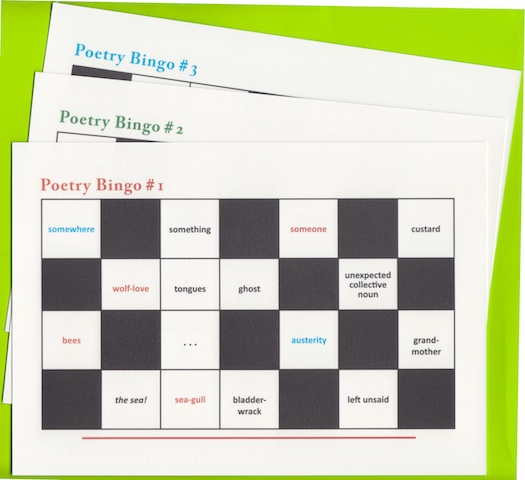‘Visa Wedding’ by Harry Giles
-Reviewed by Donald Gardner–
What makes Harry Giles’s first pamphlet of poetry stand out is its concentration and humour. There are not many words wasted here and if this tautness gives the work a bit of a Spartan feel, the wit restores it to warmth. He is a poet of intent and each of these poems seems chosen for its strategic value in the collection, in the sense that he is trying out different things, in form, but also in language-play. Each of these poems has a different form. ‘Hidden Track’ is built of half lines with a blank central space that works as a caesura, while in ‘The Usual’ he uses back slashes to indicate line breaks and ends the poem mid-sentence: ‘… so my history doesn’t meet yours / so I turn to leave / so.’ With his theatrical training (East 15 acting school) and, I believe, a cluster of like-minded poets in St Andrews, he strikes me as having plenty of ‘background’ and his work has a technical maturity which maybe comes from having had plenty of focussed practice.
Giles presents himself as a performance poet, but it’s worth mentioning en passant that ‘performance poetry’ doesn’t always mean free and easy, whatever the ‘does-it-work-as-a-poem-on-the-page?’ crew aver. I particularly liked his super-solemn funny poem ‘Sermon’. It is almost a ready-made, with its sampling of predictable clichés about terrorism from a speech by David Cameron, but Giles’s interventions hijack the speech, so that he can claim it as his own, having turned banality into poem. To give an example of this technique:
‘… There are those
who use love to promote their goal. This is wrong.
There is much muddled thinking about this issue.
We should cut ourselves off from love. Let’s not
fool ourselves. If we sort out all these problems
there will still be love. …’
The effect is hilarious and one can imagine how well it would work, read dead-pan on the stage.
Although Giles is originally from the Orkney Islands, there is a big-city feel about this work. He stresses his outsider mind-set in ‘Visa Wedding # 2’:
‘… in Orkney I’m English;
in England I’m Scottish;
in Scotland, Orcadian –
this slippery, many-coloured tongue
snaps at identity…’.
This in-between state is confirmed by ‘Visa Wedding # 1’, which is the same poem as ‘Visa Wedding # 2 but written in a very personal version of Scottish. The duplication could be seen as a page-filler, but I felt it had a didactic function, that he was making a statement about language; it also struck me that the version in Giles’s piebald, ribald Scottish is a richer mix.
Underlying Giles’s humour there is plenty of passion, as in ‘Brave’, the mid-length Whitmanesque poem, written again in Scottish, with which he closes the book:
‘I sing o a Scotland whit cadna hink of a grander wey tae end a nite as
wi a poke of chips n curry sauce.
whit chacks the date o Bannockburn on Wikipaedia, …’ .
The poem has an epic free-verse line reminiscent of Whitman or Ginsberg, but the detail slows down the rant, turning it into a rich entertaining, thought-provoking mix.
Not all his poems make for a comfortable read however. Take ‘Piercings’, for instance:
‘… The lipring that turned
his pout sullen, hot. The jangle
of earrings I’d buried my face in
as he steel-tracked my heavy
shoulders. The scaffold. The sharp,
shocking stud in his busy tongue.
The poem with its taut five-line stanzas was maybe a bit too literally ‘in your face’ for me and I felt more comfortable with the two poems I described above, and also the other poems in Scots dialect. Giles seems to veer between an intellectual, formal severity and a desire to celebrate, a naughtiness that charms, as in ‘Vows’, where he devises a list of marriage vows that would obviate the need for divorce later on.
‘… I will love you for
as long as I do
I will obey you whenever
it accords with my wishes …’
It’s a cynical spoof on marriage vows but there’s a lightness of touch that lifts it off the page. I enjoyed Giles’s pamphlet, even if some of the work feels a bit as if he’s lashed himself to the mast of anarchism. Finally I noticed that there is also a love interest running through the poems, even where the text affects to be utterly disinterested: ‘I have failed to prove / the null hypothesis / that I do not love you.’ Or, ‘… Whatever: I will hold you, / no matter how bright or black you burn. …’ And how about this?: ‘… this undesairvt wairmth / o inexplicable luve, …’ The lines are taken, rather out of context, from ‘Brave’. This is the poem that breaks the mould for me, that really says something in a way that is linguistically interesting, making me curious to see what Harry Giles will do next.





Pingback: Visa Wedding Reviewed | Harry Giles : Home